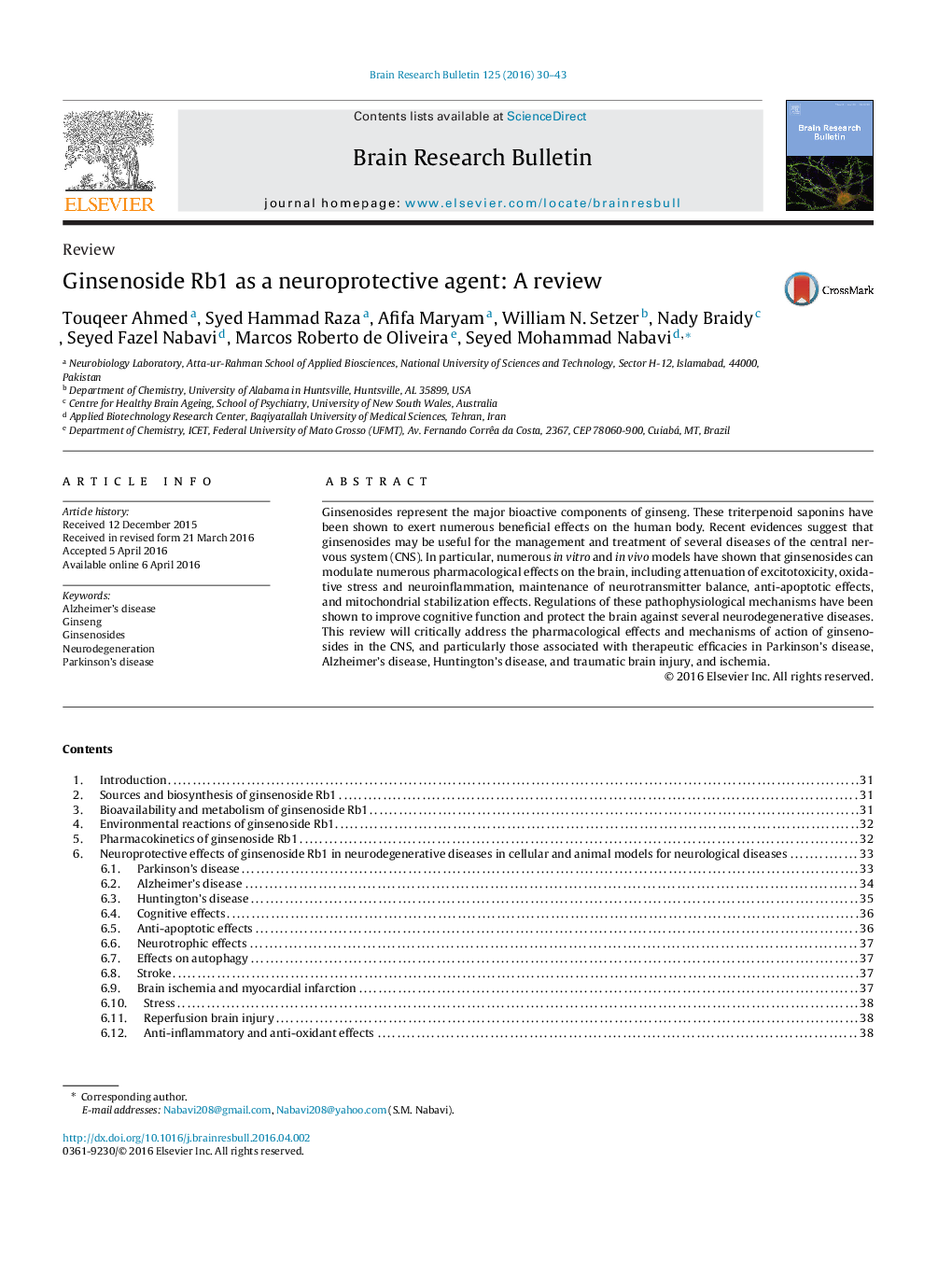| Article ID | Journal | Published Year | Pages | File Type |
|---|---|---|---|---|
| 6261513 | Brain Research Bulletin | 2016 | 14 Pages |
â¢Ginsenosides represent the major bioactive components of ginseng.â¢Ginsenosides exert beneficial effects on the human body.â¢Ginsenosides can modulate numerous pharmacological effects on the brain in vitro and in vivo.â¢Ginsenosides can improve cognitive function and protect against neurodegeneration.â¢Clinical testing and validation of preclinical data.
Ginsenosides represent the major bioactive components of ginseng. These triterpenoid saponins have been shown to exert numerous beneficial effects on the human body. Recent evidences suggest that ginsenosides may be useful for the management and treatment of several diseases of the central nervous system (CNS). In particular, numerous in vitro and in vivo models have shown that ginsenosides can modulate numerous pharmacological effects on the brain, including attenuation of excitotoxicity, oxidative stress and neuroinflammation, maintenance of neurotransmitter balance, anti-apoptotic effects, and mitochondrial stabilization effects. Regulations of these pathophysiological mechanisms have been shown to improve cognitive function and protect the brain against several neurodegenerative diseases. This review will critically address the pharmacological effects and mechanisms of action of ginsenosides in the CNS, and particularly those associated with therapeutic efficacies in Parkinson's disease, Alzheimer's disease, Huntington's disease, and traumatic brain injury, and ischemia.
